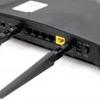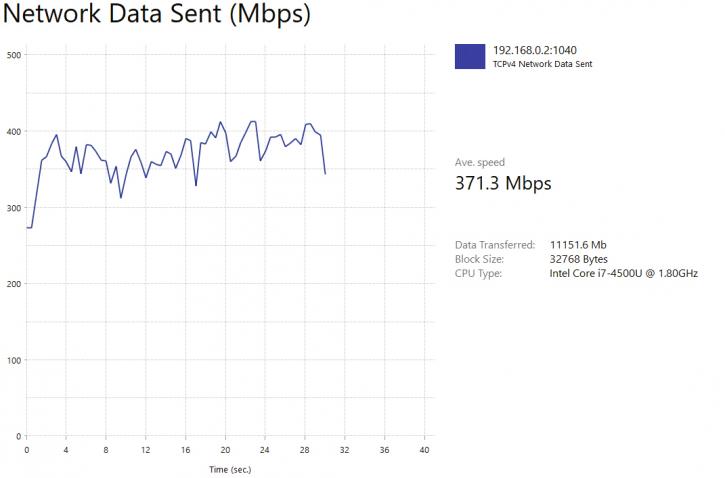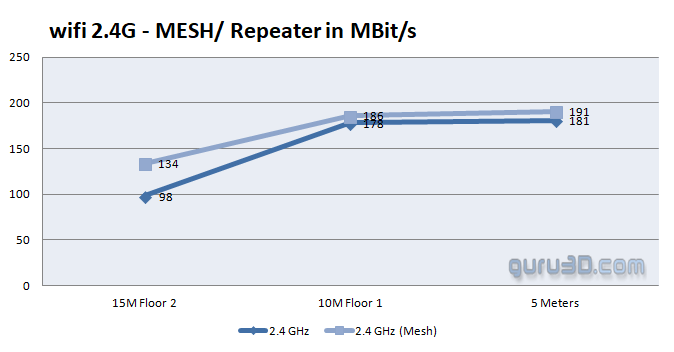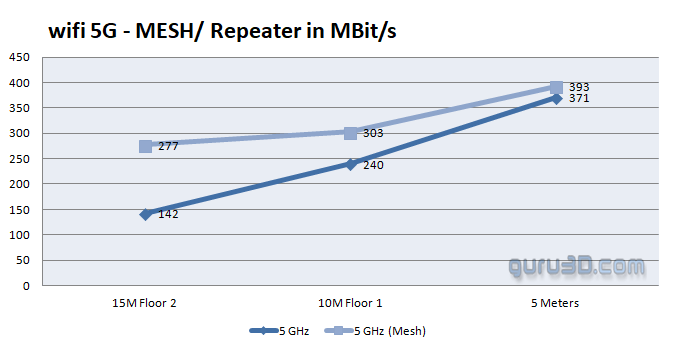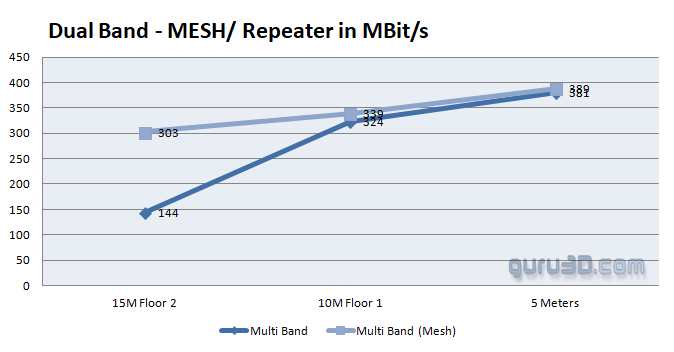Performance Wireless (XR500 router)
Performance Wireless
Starting this review we'll use new (professional) measuring software for LAN and WIFI throughput, ergo you cannot compare the WIFI results with previous reviews. We emulate what you would get performance wise inside a house with a multi-level concrete floor. We'll look at dual-band 5 GHz, single band 2.4 GHz and single band 5 GHz. We first test a single router, not the mesh just yet. The router (host) is positioned at ground level and we test with a client (laptop). Our test is simple, we move data (throughput) software on 2.4G, 5G and, if available, dual-band WIFI. Unfortunately, I do not have triple band WIFI on my laptop. But we're trying to find out if this router can fill all corners of the house with some sort of WIFI signal. For example, if you have your router on the ground floor and you want to watch Netflix in Ultra HD in your attic where you've built your home-cinema setup or gaming crib. For Netflix, that signal would require at least roughly 25 Mbit/s. Netflix Ultra HD - in fact, uses just over 15 Mbit/s, but you need a little reserve for caching and error correction. So 25 Mbits at the worst location would be the absolute total minimum goal to reach. It would also be an acceptable figure for a bit of web browsing of course.
Above, a test example of a single band 5G test run. Bear in mind that from here onwards we will note down average scores in Mbit/s. That means that short bursts of peak performance can be higher and/or lower. We, however, care about the average measured performance.
Results will vary anywhere and everywhere on this globe. There are so many variables that have an effect on WIFI it's staggering. Also, you can have a great WIFI router (HOST) but if your laptop (CLIENT) has poor WIFI, you're not going to achieve great numbers. The same can be said about the building you are in, reinforced concrete/steel walls? You'll get lower performance. Are there more factors involving WIFI performance? Yes, the number of WIFI routers in your neighborhood and even equipment like your refrigerator turning off/on and, hey now, do you know what frequency a microwave uses? Yep, 2400 Mhz, as such it can have an effect on performance. That makes WIFI tests a rather subjective and difficult thing to replicate. Our results are pretty much worst case scenario, I am in a building with steel reinforced concrete walls and I just sniffed for WIFI hotspots in the neighborhood and stopped counting at 40 (!). Let's have a peek how the router behaves, again we have not enabled the mesh repeater just yet:
Average MBit/s
I'll stress this a couple of times - the numbers you see are measured in average Mbit/sec, divided by eight bits, that's your performance in megabytes per second. I have to say that dual-band perf disappointed, we're not sure what was going on there - but single 5G is really good. However, pretty exceptional is the 2.4G performance. I mean, 100 Mbit/s on average through two concrete walls in the attic roughly 15 meters away from the router, that's good. But hey, we've got that extender as well of course.
Extender performance
So on the previous pages, you have been able to read that we have two of these routers. Let's have a peek and overlay, per band, the increased performance.
So yes, maximum performance numbers remain roughly the same. Actually, the results are fairly close to each other, until you look a little more in-depth. Dual-band performance overall became a bit stronger and felt more steady. The 2.4 GHz, in the attic, now jumps to 134 Mbit/s. Not super, but plenty fast enough for your Ultra HD Netflix or some simple file-copying of course.
Mind you also, this is real throughput thus the actual copy performance and not your connection link.
While the numbers aren't doubling, the connection rate was so much better on AC band WIFI. 277 MBit/s throughput at 15 meters through concrete floors, that's pretty impressive. And again, these are averaged out throughput rates. The peak throughput can exceed 500 Mbit/sec.
Average transfer throughput speeds on Dual band 2.4G+5GBits/s peaks.
In the end, we often say a mesh or range extender is not worth the extra money invested (for this particular household with this particular router). However, it does make a solid difference at more difficult to reach places. You can get your four full bars on that WIFI connection throughout the house, fairly easily. Let me also mention that the mesh/extender is not always about faster performance, but more about a steady connection.
